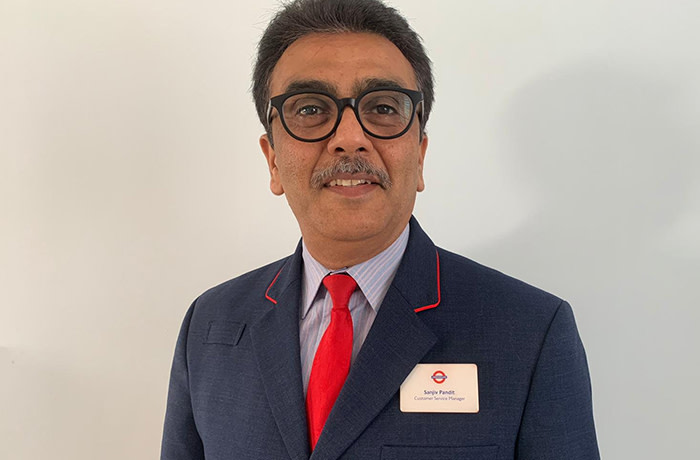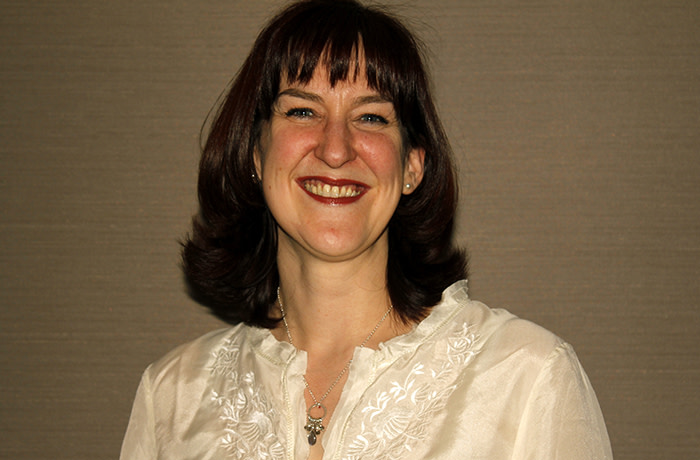Diary of a London Tube manager: ‘The hardest thing is not knowing which customers have coronavirus’

Roula Khalaf, Editor of the FT, selects her favourite stories in this weekly newsletter.
Sanjiv Pandit, customer service manager, Marble Arch Underground Station, London
‘The hardest thing right now is not knowing which customers have coronavirus’
The government is saying “stay at home”, but for us — people that are keeping London’s transport networks running — it feels like nothing has changed. Passenger numbers have reduced, but people are still travelling. Bankers, NHS staff, construction workers, people who work in hotels — you see them all still coming through the station.
On the news there is so much coverage about the NHS, which is right given how bad this situation is for public health. But there are so many other people keeping this country going that no one sees or hears. Without us, the hospital staff couldn’t get to work.
To keep the London Underground functioning the trains need to be out on time, so we need to find drivers. If one gets sick, it means we need to find a new driver — and more and more are getting sick. For the stations, we need a minimum level of staff to open up. As nearby stations — Lancaster Gate and Queensway — are closed, keeping Marble Arch open has become a priority. Staff sicknesses have increased, so we are changing our schedules all the time, almost daily, compared to before when shifts were allocated weeks in advance.
In recent weeks, customers have been getting angry and starting arguments with station staff. About 60 per cent of trains are running through the station as they should, versus more than 90 per cent normally. Passengers keep saying “I’ve paid for this, so why isn’t there a service?” We don’t control these things.
The hardest thing right now is not knowing which customers have coronavirus and which ones don’t. For example — if any customer falls ill on the train, it’s the station staff that have to go and deal with it. We will be at close quarters. We are putting ourselves at risk. We are exposing ourselves.
A few of us have medical conditions that put us in a vulnerable category. One of my staff has had to be signed off for 12 weeks, but not everyone can do that, otherwise how will the Tube service run? I have a heart condition. Until I’m told otherwise, I will keep working, but I’m taking extra precautions for myself and my family. To get to Marble Arch in the morning, I get on the least busy train. On the way home, I walk as much as I can, to Liverpool Street, before I get the train back. At home, I’m constantly cleaning and disinfecting door handles.
My 94-year-old father lives with me, like in a lot of Asian families. It is always a worry. But no matter how many precautions I take, if it’s going to hit you, it’s going to hit you. I feel a lot of pressure on me. I go to work, keep a distance from my staff and passengers — which is not always possible — then I have an elderly person at home. I help him go to the bathroom and such things. It’s not possible for me to isolate myself in any way.
All of us who are keeping things going are in the same boat — from bus drivers to supermarket staff and pharmacists. Because of us, people can carry on doing their jobs. We are just as important. The bottom line is we’re not getting the respect we deserve.
As told to Anjli Raval
Ros Toynbee, director, The Career Coach
‘There’s a lot of pressure to work harder at this time, and make the most of the business opportunities. I have felt overwhelmed’

Working from home should not have been a big deal for me. I have been a leadership and career coach for 17 years, and for the past 14 of those I have run the business from my apartment in east London.
However, with the local primary school closed to all but key workers, I have become a homeschooler too, for my 10-year-old daughter.
Before the coronavirus crisis we had a good routine. I would get up and dress for the office (you cannot work sitting around in your pyjamas all day). I would walk my daughter to school, then work straight through until half past three when I would pick her up. The hours from then until 8 o’clock, when she gets ready for bed, were family time.
That routine has required adjustment, but I felt very virtuous sitting down with my daughter and writing down a timetable. We would start the day with a workout — streaming Joe Wicks on the computer at 9am. After that she would do schoolwork until 12.30pm, then we would break for lunch before returning to schoolwork until 3pm.
It worked well, for a couple of hours. On that first Monday I planned to have chicken for lunch, so had to get it in the oven by 11. No sooner had I done that, my daughter asked me to check her work. Then I realised it was 11.30 and I had missed an 11.15 networking call. Fortunately, the other person understood the difficulties of multitasking — she had a child at home too — and we rearranged. But it made me feel vulnerable.
There is a lot of pressure to work harder during this time. My inbox and my social media feeds have been bombarded with tip sheets about using Zoom and how to make the most of the business opportunities created by the lockdown. I have felt overwhelmed by this. But also there was the sense that other coaches were being very visible, offering online seminars on how best to survive the crisis. Surely, I should be doing that?
Editor’s note

The Financial Times is making key coronavirus coverage free to read to help everyone stay informed.
Then I realised that it was not my job to write another coronavirus blog or crisis management LinkedIn post. I would just be adding to the chaos for others. But maybe what I could offer is a space for people to de-stress.
So I offered my clients a one-hour Zoom session to share with each other how they were dealing with working from home. We talked about spending the time saved by not commuting on reading a book or playing guitar. Someone said he was growing tomato plants for his neighbours. I just thought that was lovely.
I know that I can push myself hard. I am very motivated and driven. But I need to work sustainably within this new normal for the sake of myself, my business and my family. I am now sharing this message with my clients.
As told to Jonathan Moules

Comments